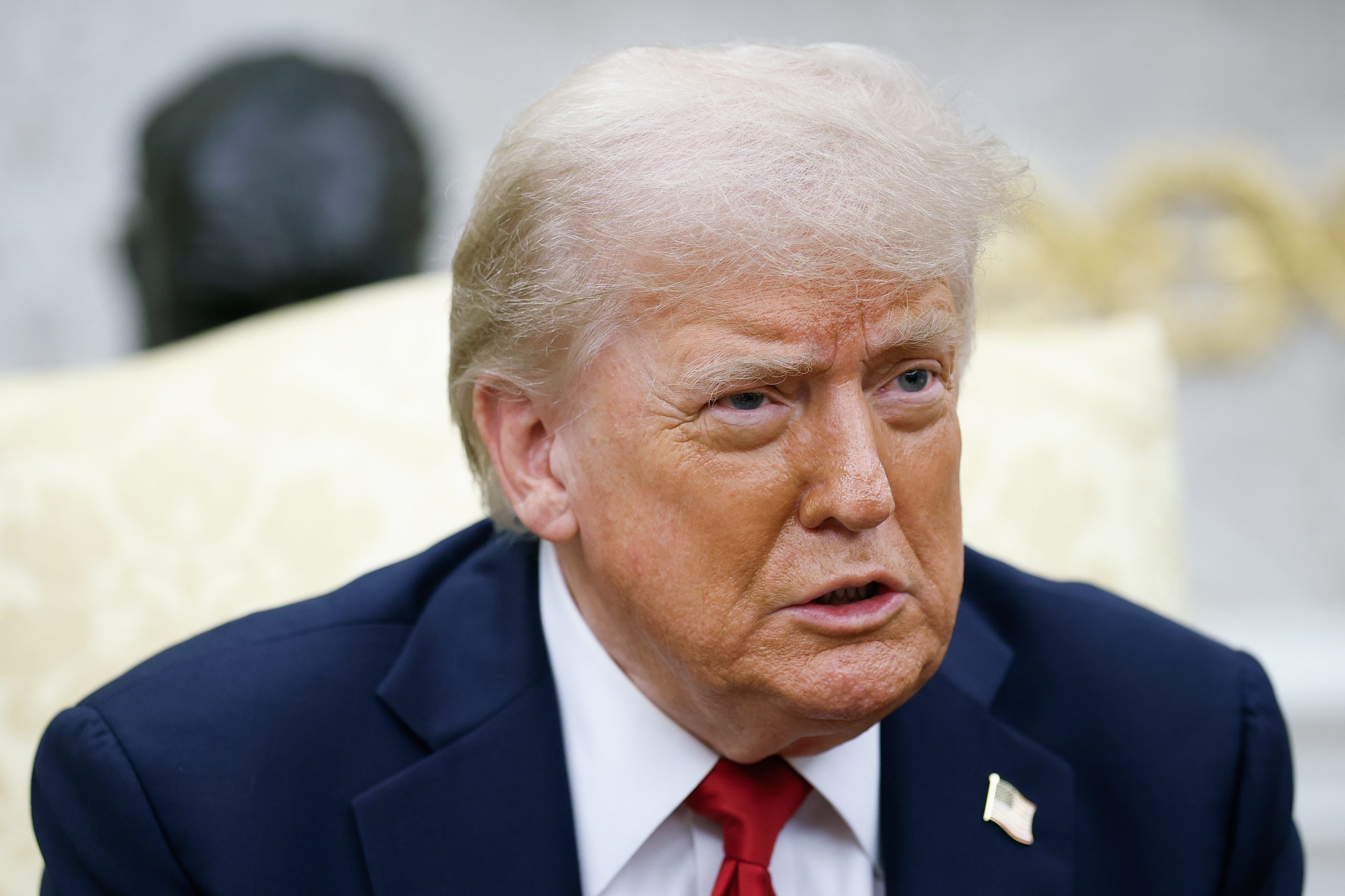Donald Trump has threatened Russia with “very severe tariffs” should it fail to reach a cease-fire deal with Ukraine within 50 days, signaling a hardened U.S. stance as the war enters a volatile new phase.
“We’re going to be doing secondary tariffs if we don’t have a deal in 50 days,” the U.S. President said during a meeting at the White House with NATO Secretary General Mark Rutte. “It’s very simple, and they’ll be at 100%.”
[time-brightcove not-tgx=”true”]
The proposed measures would target any country continuing to do business with Russia, effectively pressuring global partners to isolate Moscow economically.
Trump also confirmed that the United States would send Patriot missile systems to Ukraine as part of a broader weapons package coordinated through NATO.
“We’re going to have some [Patriots] come very soon, within days,” he said. “A couple of the countries that have patriots are going to swap over.”
The Patriot system is a highly effective air-defense platform that includes a radar station to detect incoming threats, a command center to coordinate the response, and a missile launcher capable of firing interceptor missiles, each valued at approximately $3 million.
Rutte will also meet with Secretary of State Marco Rubio on Tuesday, as U.S. and NATO leaders consider further joint action to support Ukraine and counter Russia’s military aggression.
Read more: The Man Who Wants to Save NATO
When asked if this deal would push Putin towards a peace agreement with Ukraine, Trump replied: “I think this is a chance at getting peace, or it’s just going to be the same thing.”
Trump criticized the Russian leader, describing Putin as unpredictable. “I speak to him a lot about getting this thing done, and I always hang up and say ‘well that was a nice phone call’ and then missiles are launched into Kyiv,” he said. “After that happens three or four times you say ‘the talk doesn’t mean anything’.”
“I don’t want to say he’s an assassin, but he’s a tough guy, he fooled a lot of people,” he continued.
Trump has made a number of recent criticisms of his Russian counterpart. Following a call with the Russian leader on July 4, he told reporters he was “very disappointed” with their conversation. “I don’t think he’s there… I’m just saying I don’t think he’s looking to stop, and that’s too bad.”
Read more: Trump Discovers the War in Ukraine May Be Too Complicated to Fix
Hours later, Russia carried out what was its largest aerial attack at the time on Ukraine since the start of its invasion of the country in 2022.
Four days later, following another overnight barrage on Ukrainian cities, Trump again voiced his frustration.
“We get a lot of bullsh-t thrown at us by Putin, if you want to know the truth,” he said. “He’s very nice to us all the time, but it turns out to be meaningless.”
Kremlin spokesman Dmitri Peskov responded dismissively, saying, “Trump’s way of talking is generally quite harsh, the phrases he uses,” adding that Moscow felt “pretty calm” about his words.
Trump was also said to be considering a bipartisan Senate proposal to impose sanctions on Russia oil exports in response to Putin’s seeming lack of willingness to negotiate on the war.
The surge in U.S. military commitments follows a brief but controversial pause in American munitions shipments to Ukraine earlier this month. That decision — authorized by Defense Secretary Pete Hegseth following a routine review of Pentagon spending — was not initially communicated to the White House, as first reported by CNN.
When asked about who authorized the pause during a Cabinet meeting on July 8, Trump responded: “I don’t know, why don’t you tell me?”
The pause came amid growing scrutiny of defense spending and questions over U.S. leadership within NATO. At the 2025 NATO Summit in the Netherlands, member states committed to a defense spending target of 5% of GDP by 2035 — a significant shift from earlier commitments.
When pressed then about whether the U.S. would send anti-aircraft missiles to Ukraine, Trump responded: “We’re going to see if we can make some available.”
Since then, Trump has continued to send mixed signals, expressing both impatience with Russia and an openness to negotiation.
Trump also revealed that Putin had recently offered to assist in mediating between Israel and Iran during their brief June conflict — an offer he declined. “I said, ‘No, no, you help me get a settlement with you, with Russia,’” Trump recounted. “And I think we’re going to be doing that too.”

